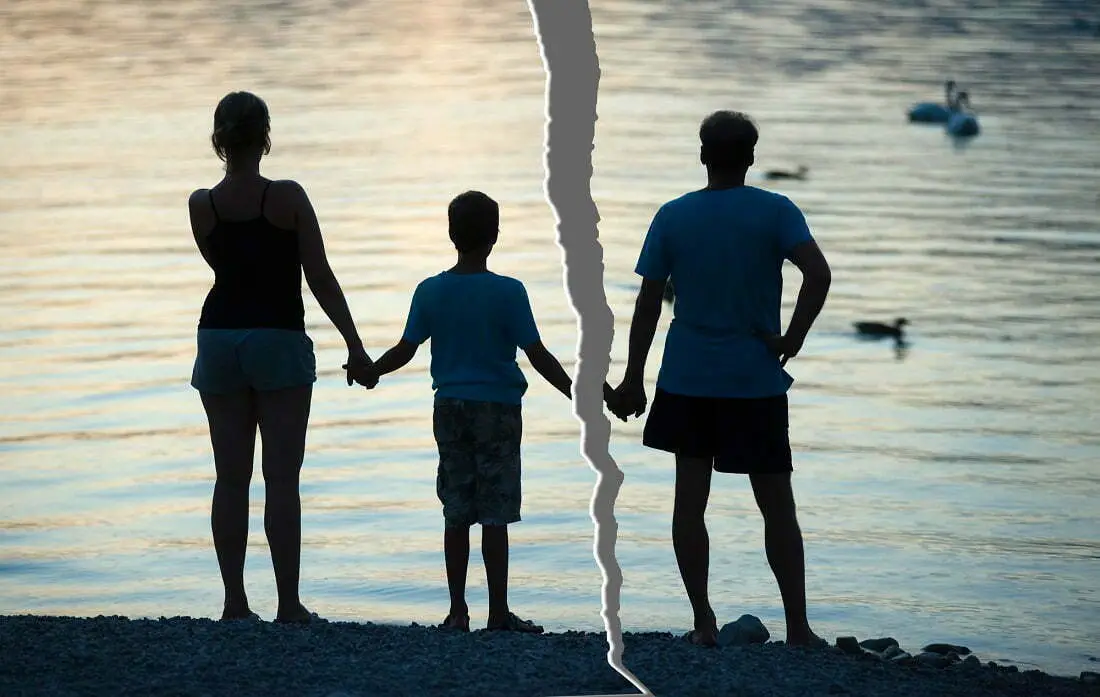Quarrels, problems, and disagreements often occur in family life. However, if the family cannot cope with these problems, you have to file for divorce and separate. This is not an easy and costly process for a person’s psyche. It is particularly challenging if there are children in the family. Then divorce becomes doubly hard, both for the parents and the children. In this article, we offer a brief guide on how to alleviate such a family loss for an adult with a child. We hope it will be helpful for your mental health.
1. Realize what is happening to you
Living through a divorce is similar to grieving for the deceased. A woman goes through the same stages:
– Shock – a person cannot believe what has happened;
– Anger – bouts of uncontrolled aggression, anger, hatred;
– Bargaining – a person agrees to do anything to get spouse back;
– Realization – understanding of what happened often leads to depression and apathy;
– Acceptance-a person accepts the fact of divorce, comes to terms with the reality, and begins to build her/his life further.
2. Take a time out
The first 2-3 months after a divorce are the hardest. This is the so-called “shock phase”, and in a state of shock, there is a risk of making a lot of mistakes. Therefore, to avoid rash and impulsive actions, allow yourself to take time out and not make any important decisions during this period. Let your brain and psyche return to a stable state where you can think soberly and rationally.
3. Dose negativity by the hour
Anger, fear, discouragement, despair, confusion, and other negative feelings are normal. You need to get over them and let your psyche respond to them so they don’t settle inside you as neuroses or other mental abnormalities.
But your task is to get through the divorce stage, to stay in a resourceful state to live and move on, to take care of yourself and your children. So learn to manage your emotions.
Suffer “by the hour.” Choose two hours a week when you allow yourself to immerse yourself in negative experiences, reflections, and emotions.
If a wave of negativity hits at another time, say “stop” and return to those thoughts during the designated hours.
The postponement technique will keep you working, as though gumming, negative emotions, and suffering take a lot of energy, which is already in short supply right now.
4. Return to the “here and now” state
Focus on what’s happening to you right now.
What do you see outside your window? The trees? How tall or low are they, what shape are the leaves on the trees, what color are they? Open the window, breathe in the fresh air. What do you feel in your lungs?
Bring thoughts and feelings back to real-time from the past or the future. Neither past nor future exists in the present moment. Return to the “here and now” more often, it will give you a chance to switch from negative thoughts and reduce anxiety.
5. Don’t be shy about asking for help
Sometimes the fear of appearing weak, unsuccessful, or generally worse than others prevents us from asking for help. Don’t shut yourself up, don’t refuse help, and don’t try to cope on your own. Ask for and accept support. Meet the kids from school, buy groceries, help with cleaning – many of the people around you will be glad to help.
6. Take care of your health.
The body and psyche are inextricably linked.
Eat, sleep and rest, be physically active. Take more walks and be out in the fresh air, energizing your body and stimulating the production of endorphins, the hormones of happiness that you need during this period.
7. Never turn a child against his or her parent
Children always unconsciously identify as 50% mom and 50% dad. If you tell them what a worthless and dishonest father they have, they will always take it personally because they half identify with their father.
All the negativity you direct at your spouse; you automatically direct at your children as well. The inability to separate from the father and the desire to please the mother creates an intractable internal conflict in the child, which can lead to unfortunate consequences.
8. Explain to your children that it is not their fault in the divorce
Children take the divorce of their parents very painfully. They shift the blame onto themselves. Don’t ignore your children’s worries and feelings, talk to them about their doubts and fears. Don’t walk away from the topic of divorce, don’t be silent. If children ask about divorce, talk to them about it as much as they need to. But in the conversation focus on the fact that it is not their fault for what happened.
9. Create an atmosphere of emotional safety for children
Children perceive the world by their parents’ reactions. The way you react to a situation is how they judge the extent of change in their universe. If you are apathetic, depressed, or even worse – aggressive, for them it will be the final collapse of their world.
They will think that if mom feels so bad, it means that their life is threatened and there is no hope for a favorable resolution of the situation. Create an atmosphere of safety for the children, try to behave positively, calmly, relaxed, friendly in their presence. Convince your children that everything will be fine.
I believe that you will cope with everything. Contact specialists, work with child psychologists, and live happily. Work, learn, develop. And most importantly, love and be loved.
